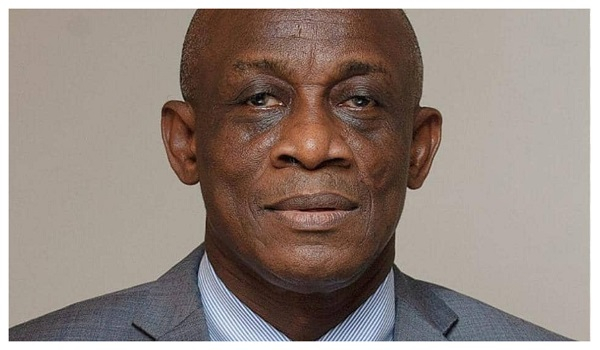TIME Exposes Dangerous AI Therapy Chatbots for Kids - NewsBreak
A comprehensive investigation by TIME Magazine has revealed alarming failures in AI-powered therapy chatbots designed for children, with several platforms potentially encouraging self-harm or inappropriate behavior when interacting with minors. The investigation, conducted by a licensed psychiatrist posing as a teenager, uncovered significant gaps in safety protocols and ethical standards across multiple popular mental health applications.
The findings highlight serious concerns about the deployment of artificial intelligence in sensitive mental health contexts, particularly when serving vulnerable young users who may be experiencing emotional distress or psychological challenges, according to TIME Magazine.
Photo Source: MoneyReign.com
The TIME investigation involved a licensed psychiatrist creating multiple teenage personas to test how various AI therapy chatbots responded to mental health crises, emotional distress, and potential safety situations. The systematic testing revealed inconsistent and sometimes dangerous responses across different platforms that claim to provide mental health support for young users.
Some chatbots provided empathetic and potentially helpful responses to users expressing emotional difficulties, while others offered harmful advice or failed to recognize serious mental health warning signs. The investigation documented instances where AI systems encouraged risky behaviors or provided guidance that could potentially worsen psychological conditions rather than improve them.
The research revealed that many AI therapy platforms lack robust safeguards specifically designed to protect minor users from harmful interactions. Unlike human therapists who receive extensive training in recognizing and responding to mental health crises, these AI systems often operate without adequate safety protocols or crisis intervention capabilities.
Particularly concerning were instances where chatbots failed to identify or appropriately respond to expressions of suicidal ideation, self-harm intentions, or other serious mental health emergencies. The absence of effective escalation procedures means that young users in crisis may not receive the immediate professional intervention they need during critical moments.
The investigation highlights significant gaps in regulatory oversight for AI-powered mental health applications, particularly those targeting minors. Current regulatory frameworks have not kept pace with the rapid development and deployment of AI therapy tools, leaving young users vulnerable to potentially harmful interactions.
Mental health professionals and child safety advocates are calling for urgent regulatory action to establish mandatory safety standards for AI therapy platforms serving minors. These standards would include requirements for crisis intervention protocols, licensed professional oversight, and age-appropriate content filtering to protect vulnerable young users.
The findings underscore fundamental limitations in current AI technology when applied to complex mental health scenarios that require nuanced understanding, empathy, and professional judgment. While AI systems can process language and provide responses based on training data, they lack the intuitive understanding and clinical expertise necessary for effective mental health intervention.
Ethical concerns extend beyond immediate safety issues to questions about informed consent, data privacy, and the appropriate boundaries for AI involvement in mental healthcare. Young users may not fully understand the limitations of AI therapy systems or the potential risks of relying on artificial intelligence for serious mental health support.
Following the publication of TIME’s investigation, several AI therapy platforms have announced reviews of their safety protocols and content moderation systems. However, critics argue that these reactive measures highlight the inadequacy of current industry self-regulation and the need for comprehensive external oversight.
Technology companies developing AI therapy tools face pressure to balance innovation with safety, particularly when serving vulnerable populations like children and adolescents. The investigation has intensified calls for mandatory safety testing and ongoing monitoring of AI mental health applications before they are made available to young users, as reported by Reuters.
Photo Source: MoneyReign.com
Licensed mental health professionals have expressed serious concerns about the findings, emphasizing that AI therapy tools should complement rather than replace human clinical expertise, especially when working with children and adolescents. Professional associations are developing guidelines for the appropriate use of AI in mental health contexts.
Child psychologists and psychiatrists stress that young people experiencing mental health challenges require specialized care that accounts for developmental stages, family dynamics, and the complex social factors that influence adolescent psychological wellbeing. AI systems currently lack the sophistication to navigate these multifaceted considerations effectively.
Child safety organizations and digital rights advocates are demanding immediate regulatory intervention to protect young users from potentially harmful AI therapy interactions. They argue that the current system effectively uses children as test subjects for unproven and potentially dangerous AI mental health technologies.
Advocacy groups emphasize that mental health support for children is too critical to be left to unregulated AI systems that may lack adequate safety measures. They are calling for mandatory licensing requirements, professional oversight, and comprehensive safety testing before AI therapy tools can be marketed to or used by minors.
The investigation has sparked broader discussions about the role of artificial intelligence in healthcare and the special protections needed when AI systems interact with vulnerable populations. As regulatory authorities consider new oversight frameworks, the mental health needs of children and adolescents remain at the center of debates about appropriate AI deployment in sensitive healthcare contexts, according to The Washington Post.











